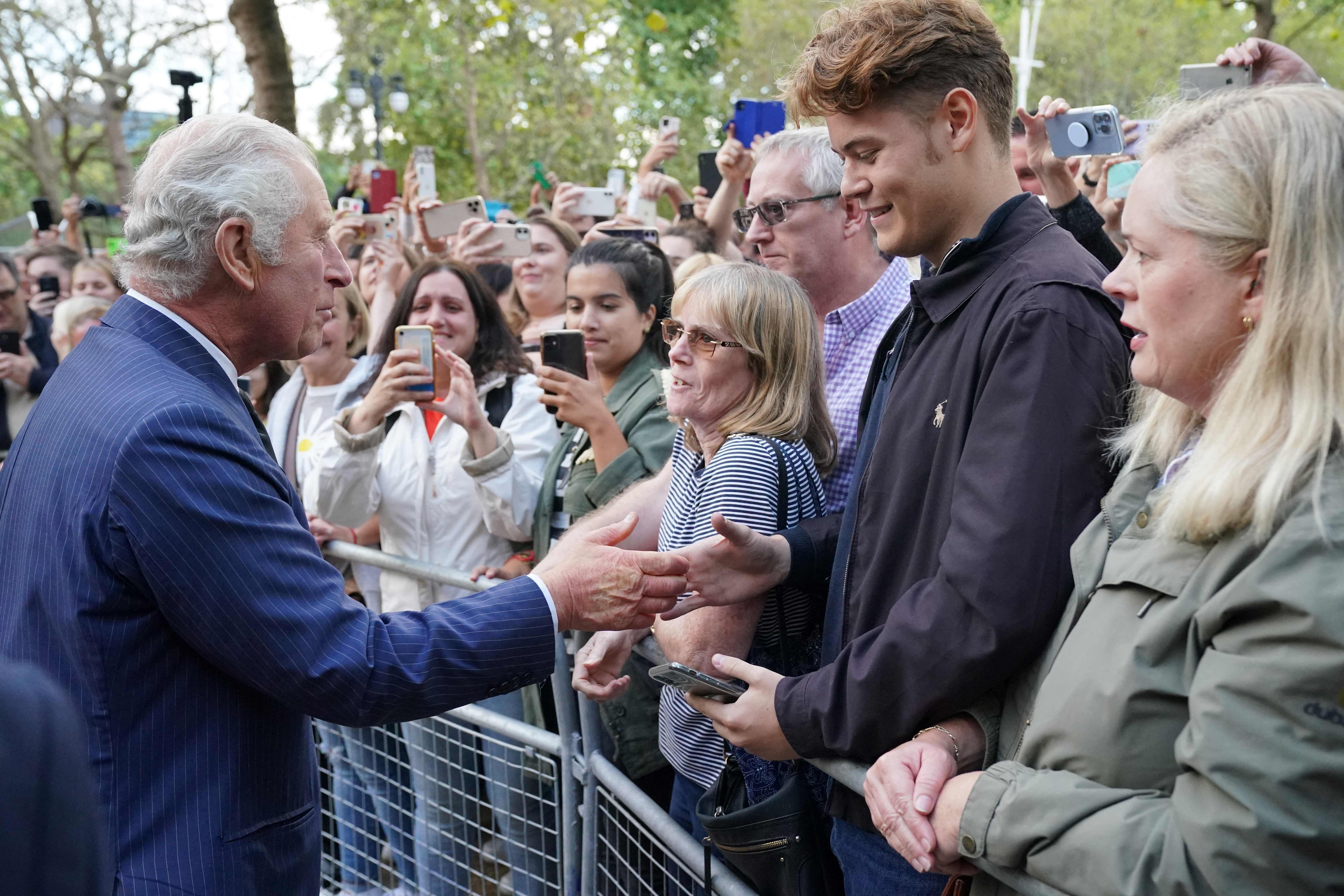The age of deference is gone – so what explains our need to keep bowing to the Windsors?
We’ve reached an age in which deference is not only old-fashioned but is also considered naive, even dangerous. And yet, writes Hannah Fearn...


In her last two decades, Queen Elizabeth II reminded me a lot of my grandmother. The knee-length, fitted tweed skirts, the blunt-toed court shoes, the same string of pearls loosely hanging around the collar of a pressed blouse. Inevitably, much of the public grief we are witnessing this week is a reference to each individual past loss. For those of us in middle age, it’s something else too: a cultural shift, marking the end of the age of deference. It went along with our grandmothers.
Maybe that’s an odd conclusion to draw while thousands queue without refreshments or toilet breaks to file past the closed coffin of a woman they never knew. You couldn’t design a better visual definition of the act of deference, but it might be the last time we see a spectacle like this.
The Queen was the last of a generation whose lives were shaped by being compliant to others. Elizabeth II’s long life of service was in itself a gesture of submission to the British state and to its people, and its people echoed it in return: hierarchy sculpted society and how citizens behaved within it.
That era has passed. We’ve reached an age in which deference is not only old-fashioned but is also considered naive, even dangerous. We are taught to advocate for ourselves at the doctors, to know ourselves and seek second opinions. We are cautioned to stand up for our children rather than accept the judgements and decisions of teachers and school leaders. Economically, our disenfranchisement means we heading into a winter of discontent, in which workers from all professions will state and demand their rights against figureheads of business.
Boris Johnson – who, at the dispatch box cut a form that could be a pure parody of elitism – rather ironically, killed it off altogether. The Partygate scandal skewered any remaining acceptance of political deference for its own sake. They who rule us don’t actually know best.
There is a good deal of disquieting video evidence circulating on social media showing that policing of dissent and protest against the monarchy (completely predictable in the days following the transition of unelected power) has been extremely heavy-handed.
Keeping order is essential in febrile times; quashing free speech in a public space achieves the opposite. Larger anti-monarchy protests will follow in the days before the Queen’s funeral on Monday, and they will be a test of that delicate balance. Yet what surprised a little more was the rage of gathered onlookers towards those expressing dissenting views. Of course, it’s a clash of the most extremely held positions, but still an interesting insight into how deference is still the majority response to the royal family; even though it has slipped away almost everywhere else.
To keep up to speed with all the latest opinions and comment sign up to our free weekly Voices Dispatches newsletter by clicking here
The grief at the death of the Queen shows that there is still an appetite among the population for her sort of semi-passive moral and ideological leadership.
In a modern community of all faiths and mostly none, who do we look for to lead us and give us a shared identity if it is not a common God? For the majority, it seems the royals serve this function.
Westminster politics – the grotty business of actually making the decisions and handling the consequences – is more riven with division and factionalism than ever. Meanwhile, in the endless mounds of flowers, marmalade sandwiches and stuffed Paddington Bears, the long queues just to see a bejewelled crown atop a closed coffin, British people seem to be reaching for something beyond politics to coalesce around. That instinct is even more understandable as the day-to-day of our lives becomes increasingly political and politicised this autumn.
What does this mean for King Charles III? It’s a signal that the monarchy is pretty safe from a sudden dismantling in the aftermath of the Queen’s death – not an assumption that could have been safely made in the late 1990s after the shocking loss of Princess Diana (and when attitudes towards Westminster politicians, their skills and their motivations, were in general much more upbeat). It’s also a suggestion that modernisation of the royal family’s structures and responsibilities hold the key to its long-term survival.
Charles has already discussed his intention to rationalise family responsibilities and his public embracing of a different path for Prince Harry and Meghan Markle in his first public address as King indicates he would be comfortable going even further.
If a slimmed-down organisation exists to exhibit some set of indisputable national values, then Charles’s own interests in ecology and the climate are a timely and helpful starting place for that rethink.
The figures vary depending on the polling organisation and the location of interviewees, but around one in four of us would prefer to be a republic. The age of deference is over – yet the Windsors can still relax knowing that, without finding a way to fulfil that yearning for a shared identity, republican campaigners are unlikely to win the argument.




Join our commenting forum
Join thought-provoking conversations, follow other Independent readers and see their replies
Comments